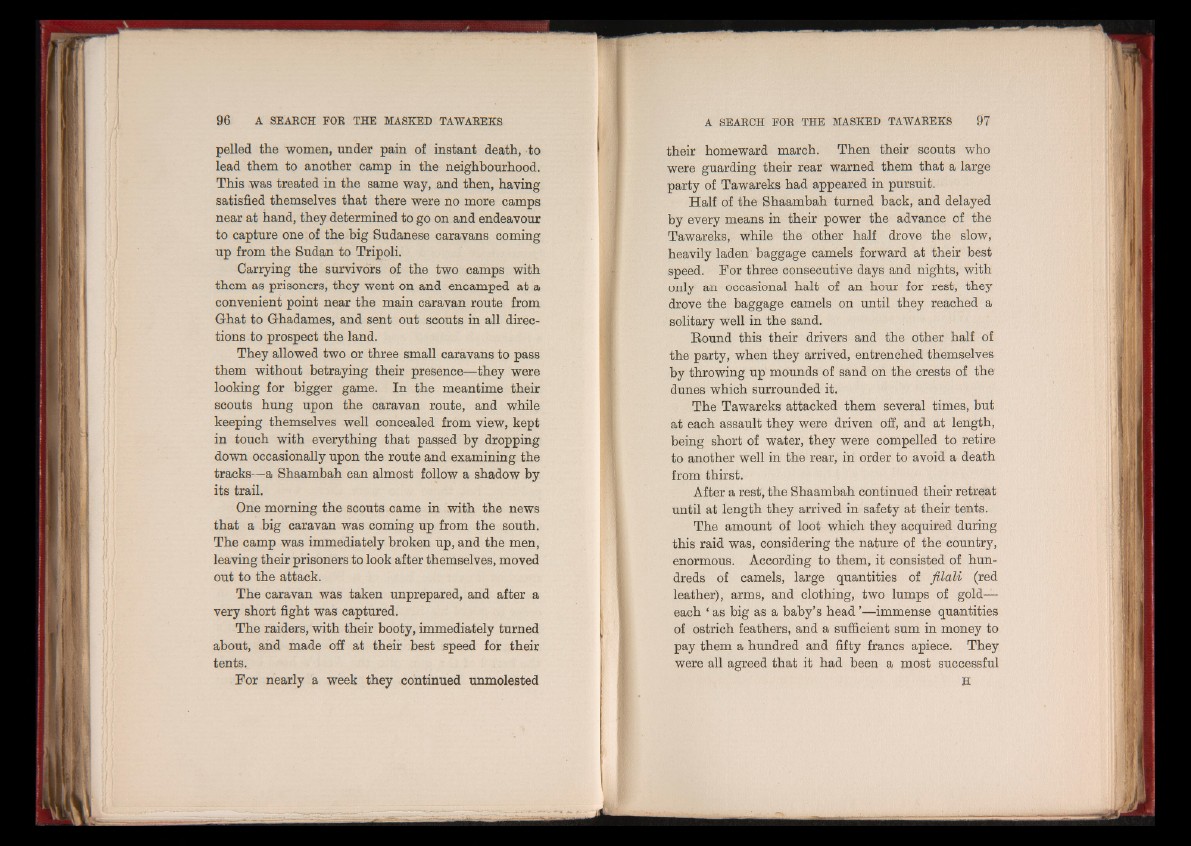
pelled the women, under pain of instant death, to
lead them to another camp in the neighbourhood.
This was treated in the same way, and then, having
satisfied themselves that there were no more camps
near at hand, they determined to go on and endeavour
to capture one of the big Sudanese caravans coming
up from the Sudan to Tripoli.
Carrying the survivors of the two camps with
them as prisoners, they went on and encamped at a
convenient point near the main caravan route from
Ghat to Ghadames, and sent out scouts in all directions
to prospect the land.
They allowed two or three small caravans to pass
them without betraying their presence—they were
looking for bigger game. In the meantime their
scouts hung upon the caravan route, and while
keeping themselves well concealed from view, kept
in touch with everything that passed by dropping
down occasionally upon the route and examining the
tracks—a Shaambah can almost follow a shadow by
its trail.
One morning the scouts came in with the news
that a big caravan was coming up from the south.
The camp was immediately broken up, and the men,
leaving their prisoners to look after themselves, moved
out to the attack.
The caravan was taken unprepared, and after a
very short fight was captured.
The raiders, with their booty, immediately turned
about, and made off at their best speed for their
tents.
For nearly a week they continued unmolested
their homeward march. Then their scouts who
were guarding their rear warned them that a large
party of Tawareks had appeared in pursuit.
Half of the Shaambah turned back, and delayed
by every means in their power the advance of the
Tawareks, while the other half drove the slow,
heavily laden baggage camels forward at their best
speed. For three consecutive days and nights, with
only an occasional halt of an hour for rest, they
drove the baggage camels on until they reached a
solitary well in the sand.
Round this their drivers and the other half of
the party, when they arrived, entrenched themselves
by throwing up mounds of sand on the crests of the
dunes which surrounded it.
The Tawareks attacked them several times, but
at each assault they were driven off, and at length,
being short of water, they were compelled to retire
to another well in the rear, in order to avoid a death
from thirst.
After a rest, the Shaambah continued their retreat
until at length they arrived in safety at their tents.
The amount of loot which they acquired during
t.bis raid was, considering the nature of the country,
enormous. According to them, it consisted of hundreds
of camels, large quantities of filali (red
leather), arms, and clothing, two lumps of gold—
each * as big as a baby’s head ’—immense quantities
of ostrich feathers, and a sufficient sum in money to
pay them a hundred and fifty francs apiece. They
were all agreed that it had been a most successful